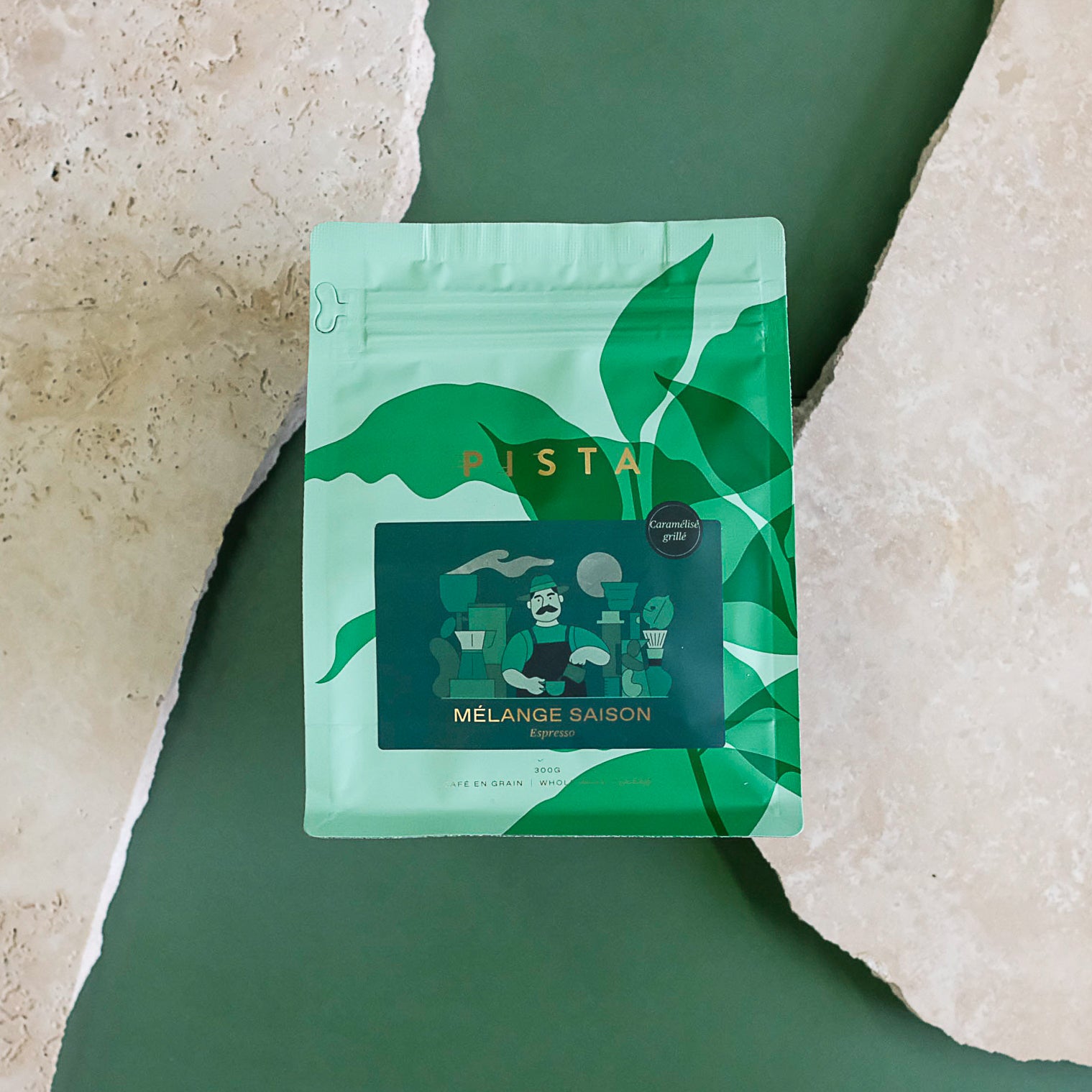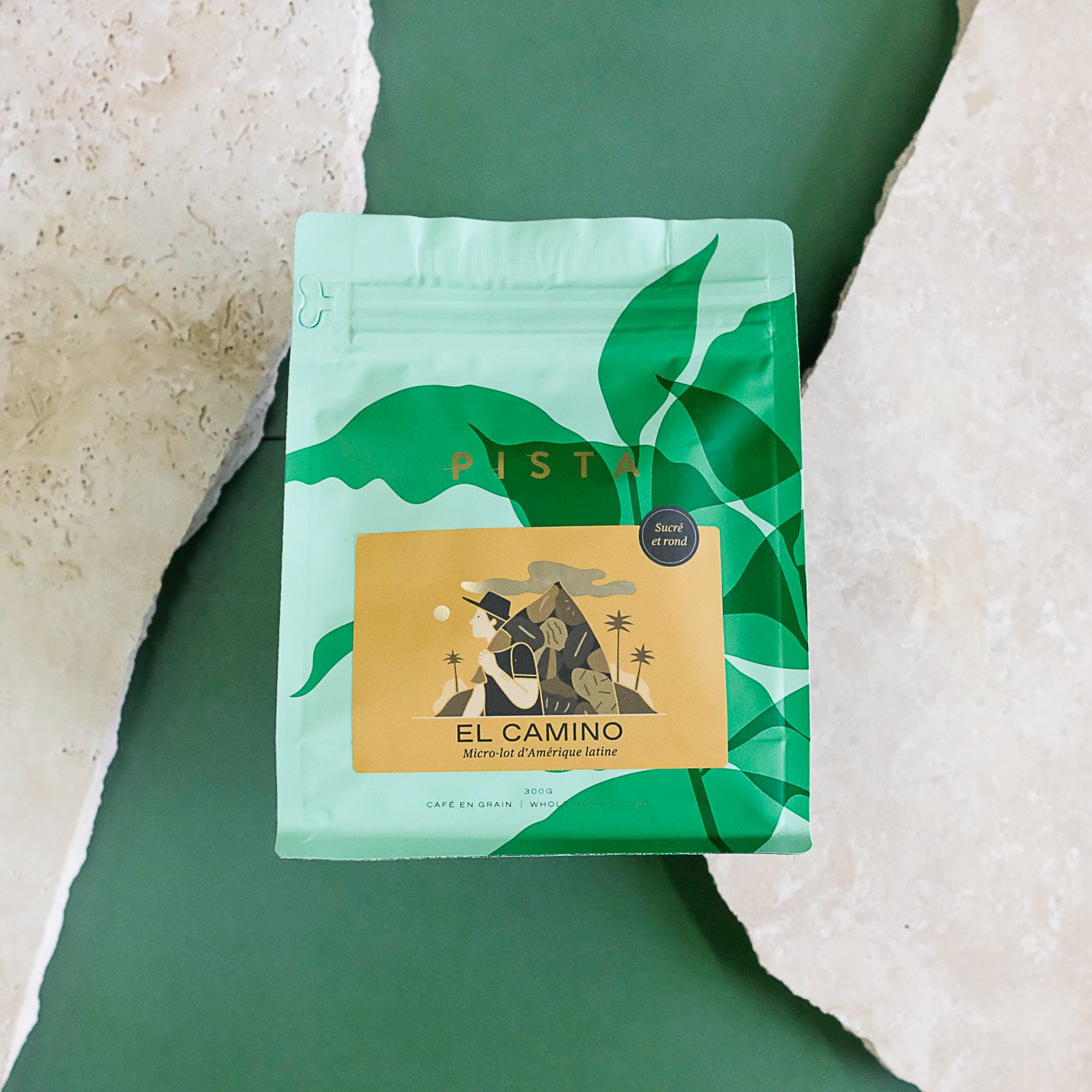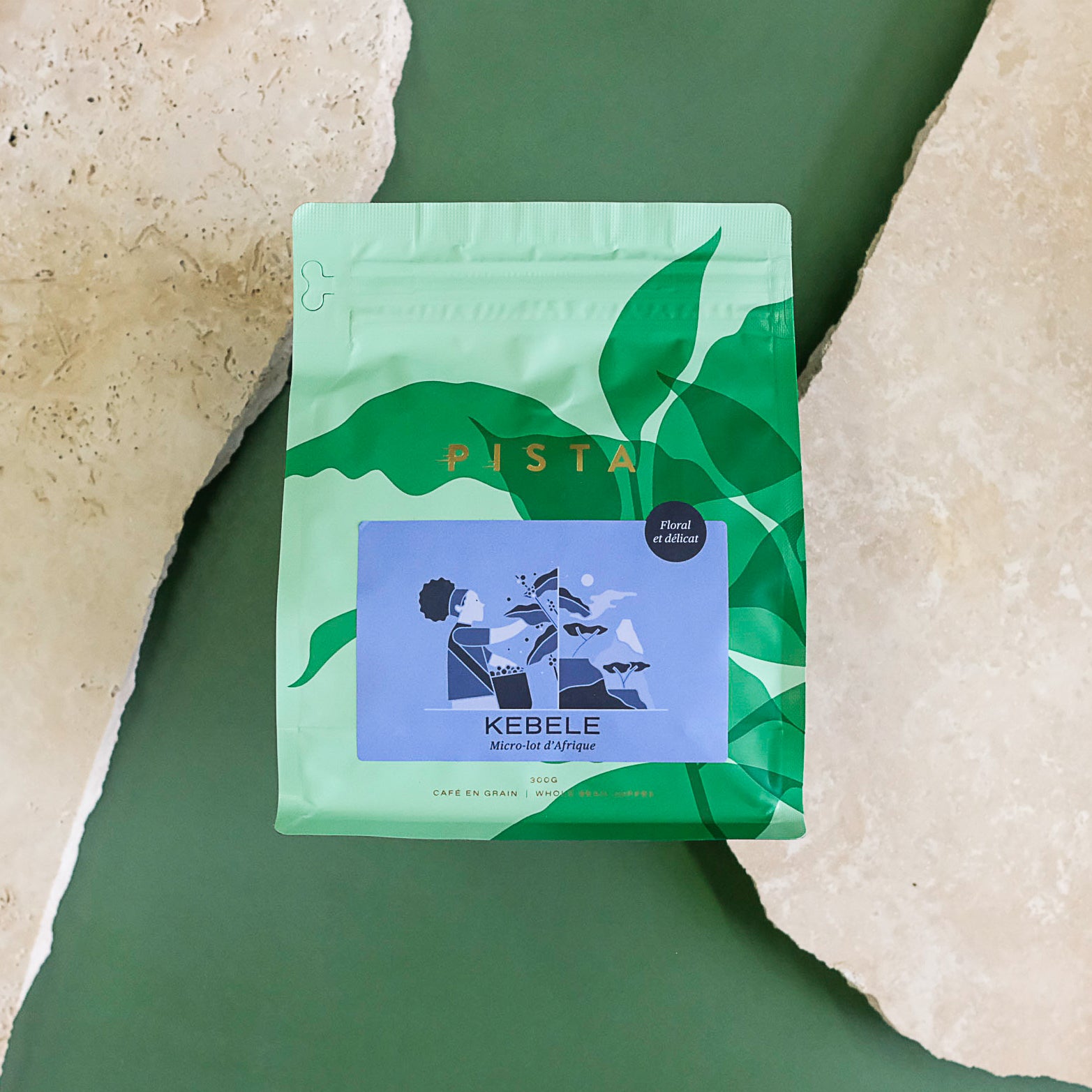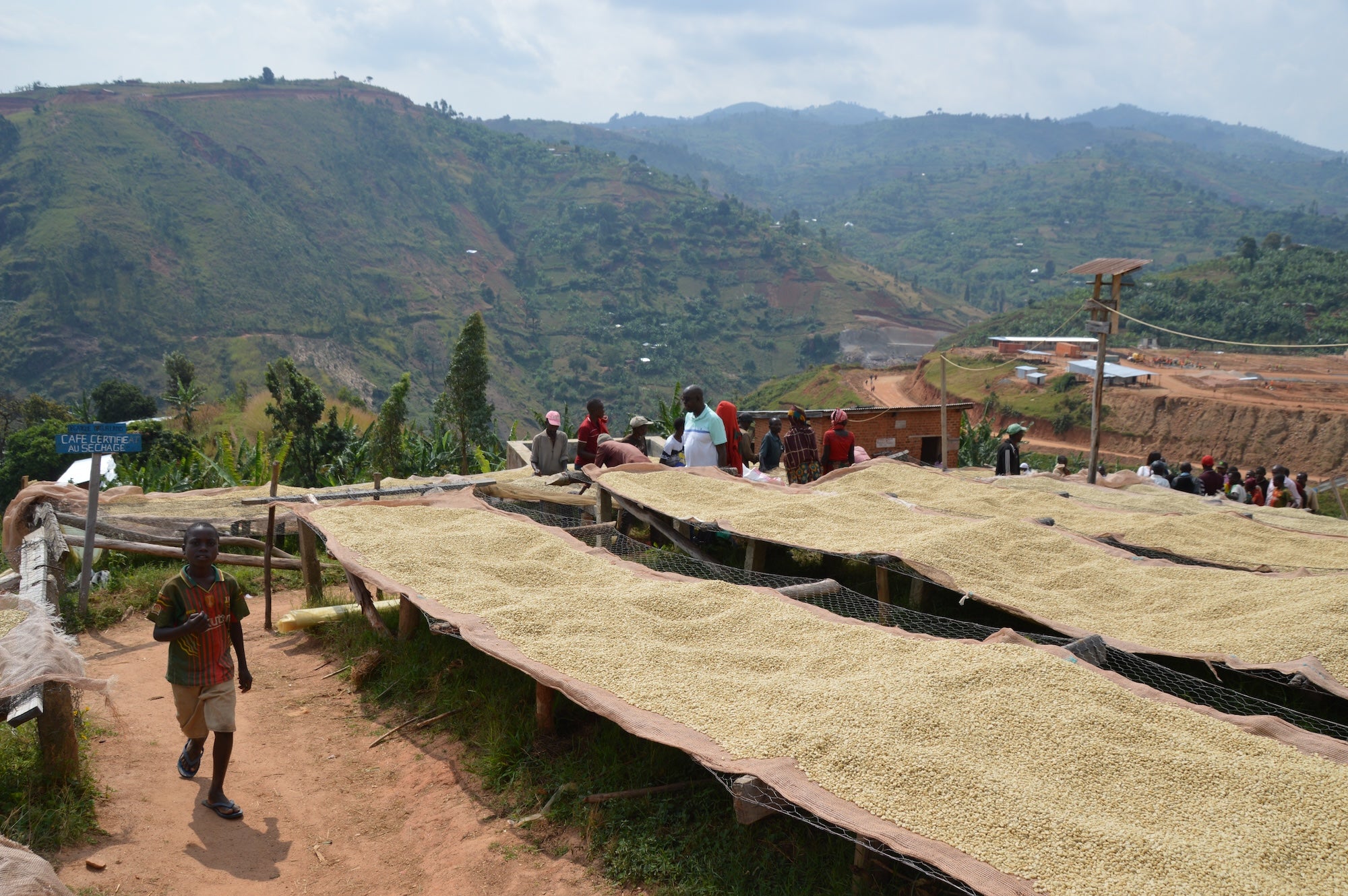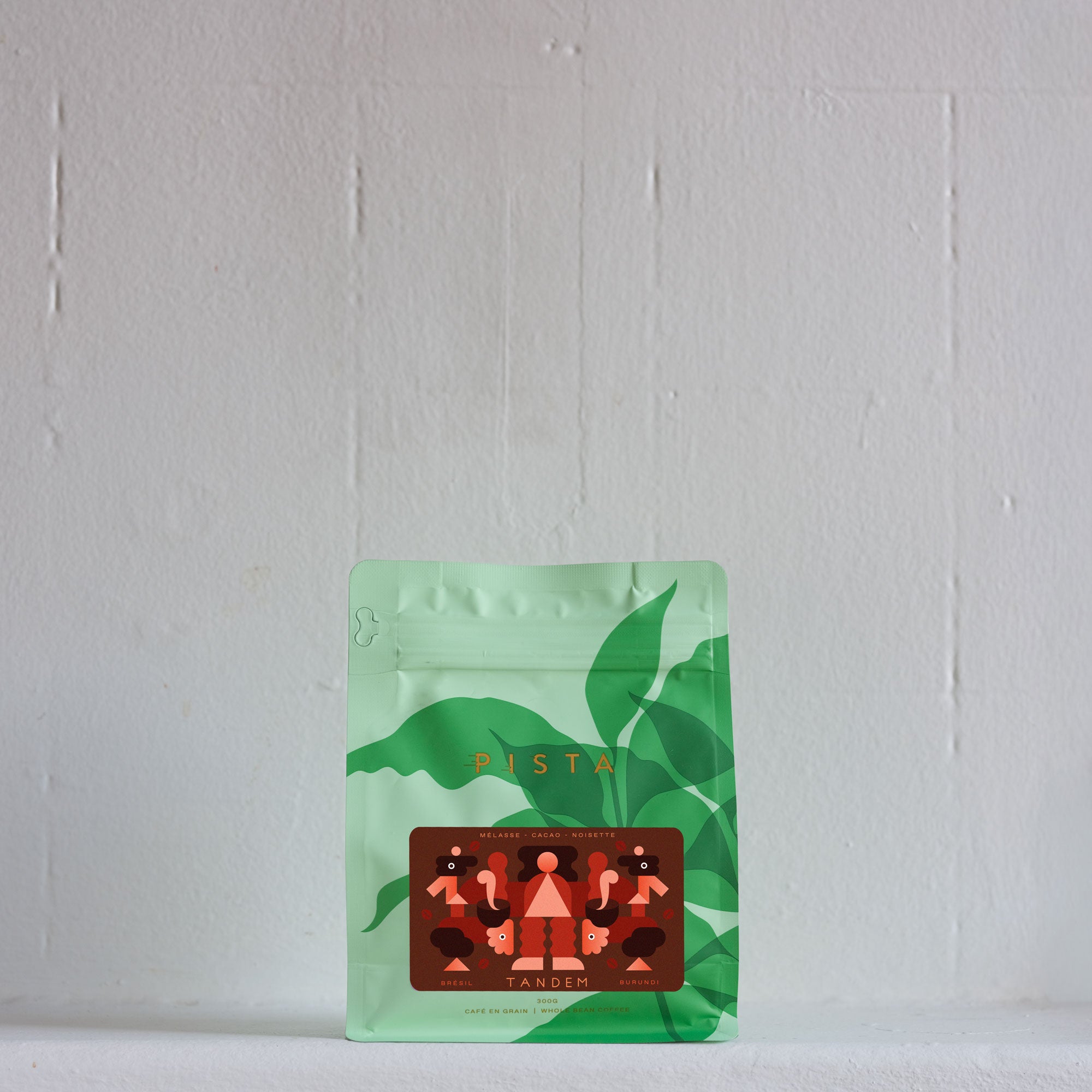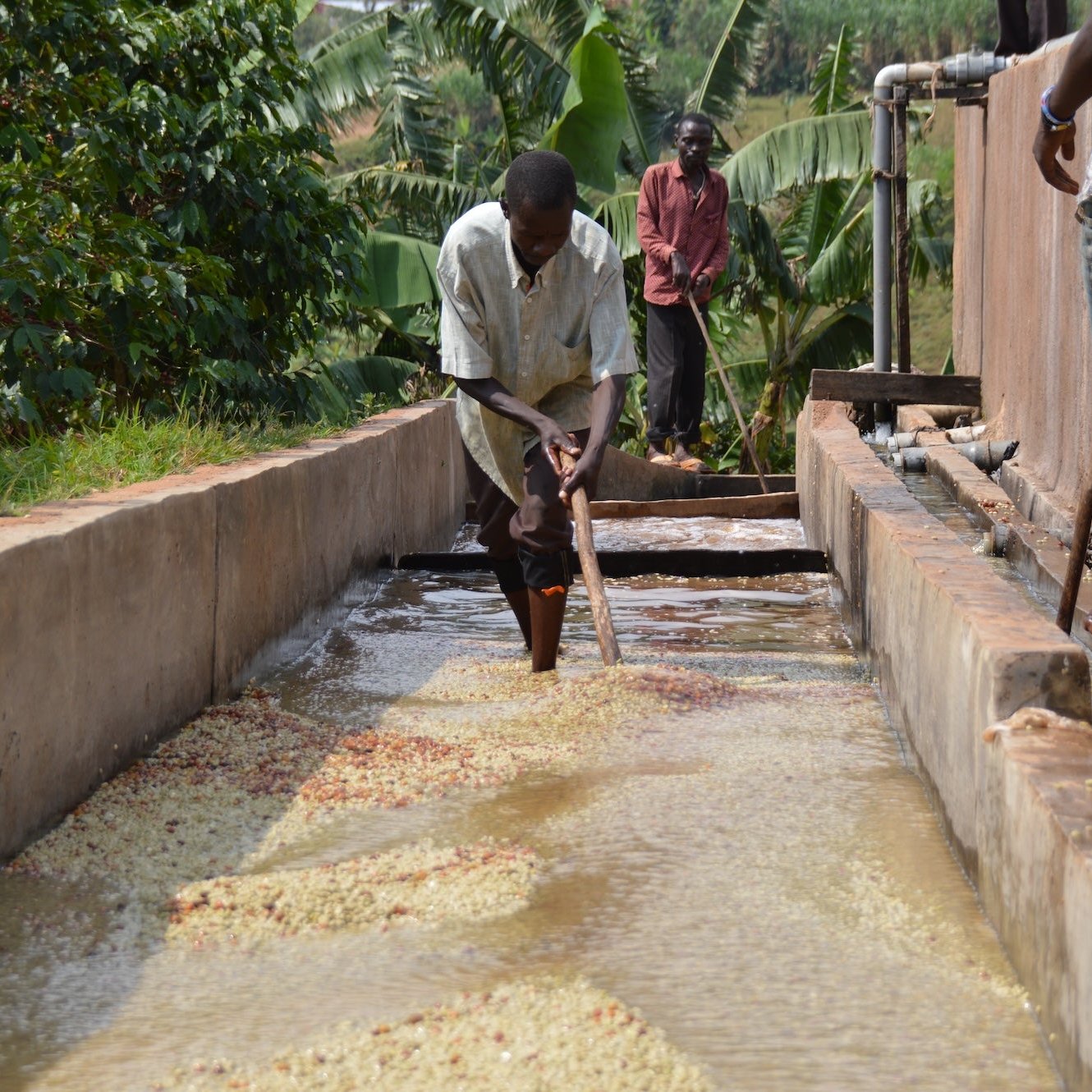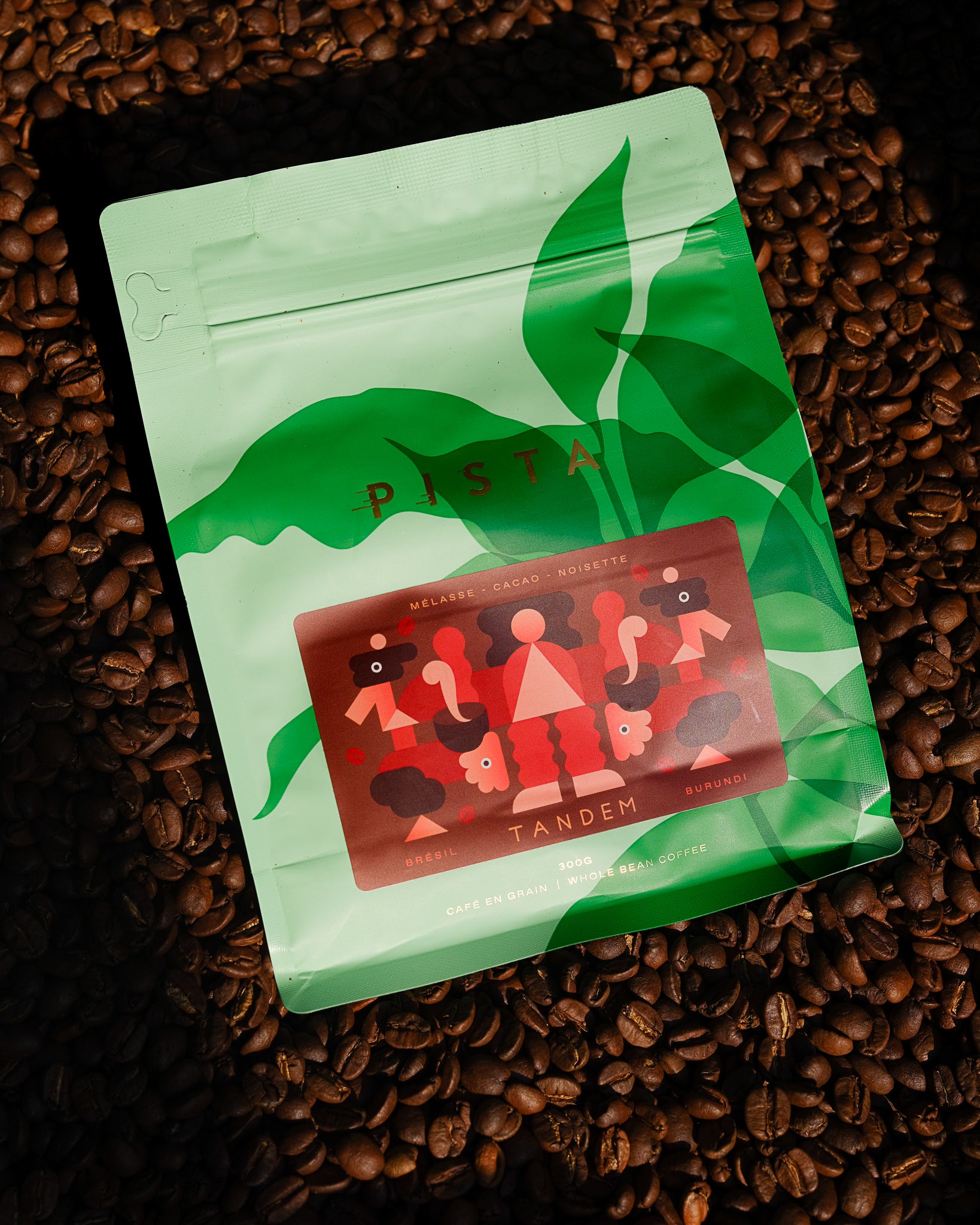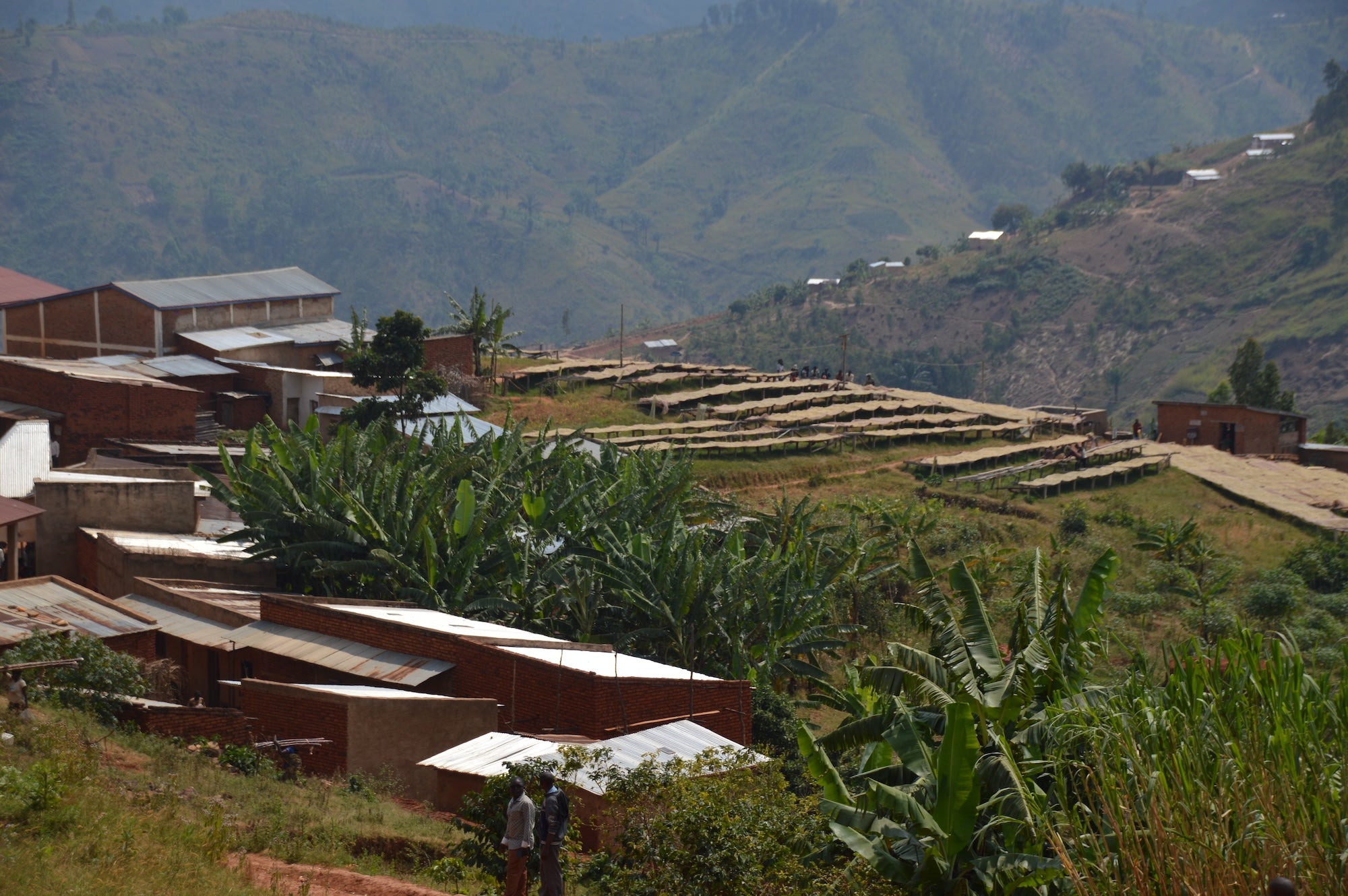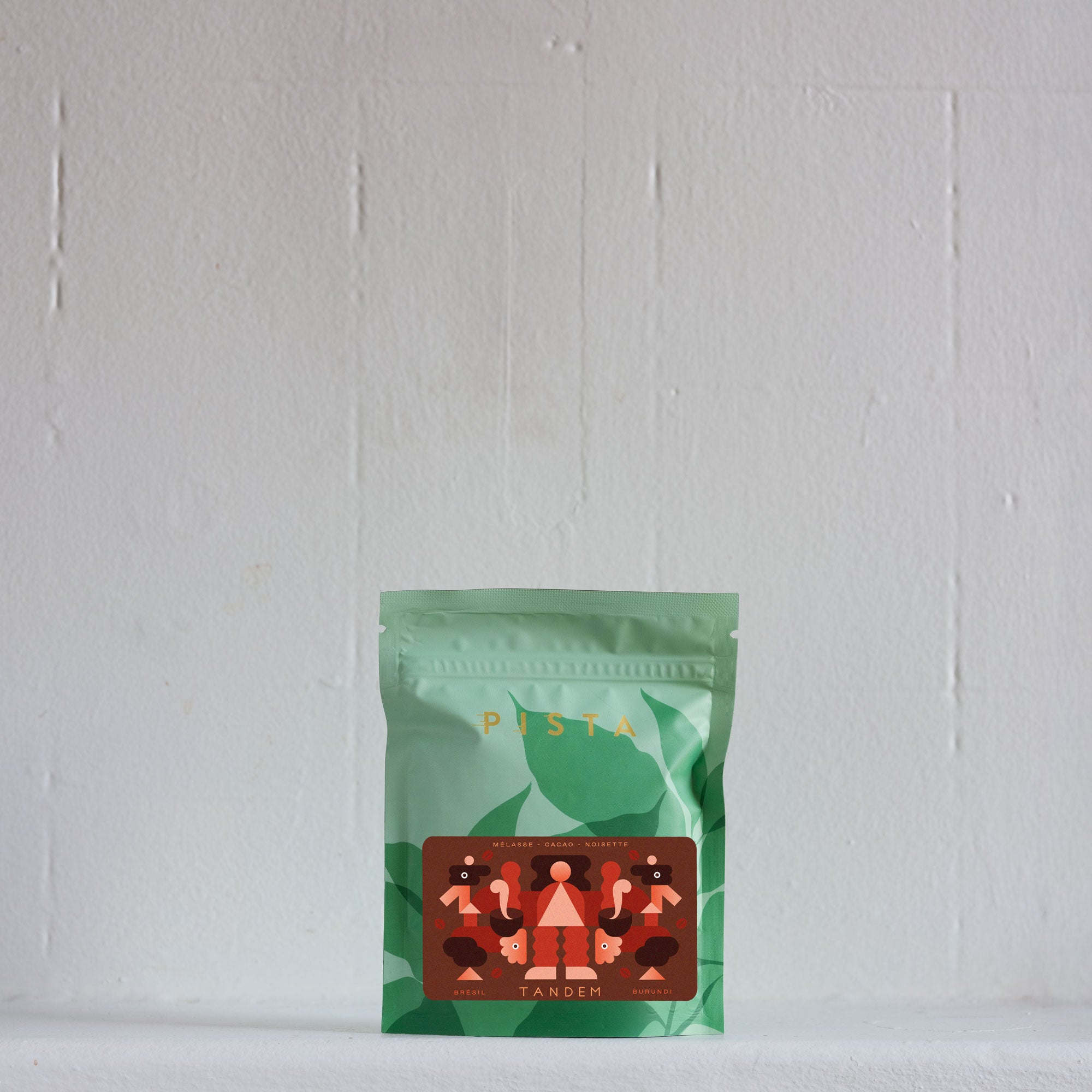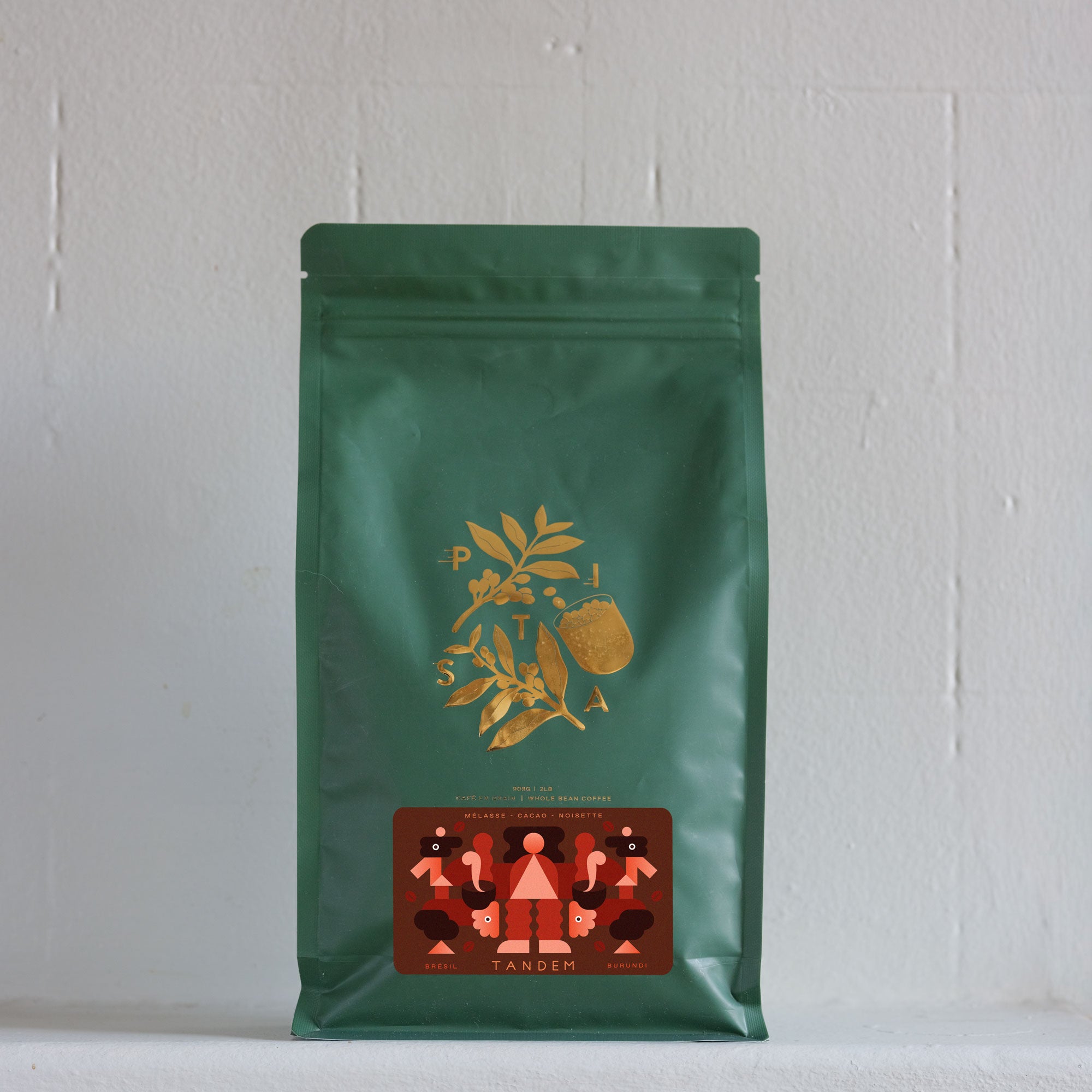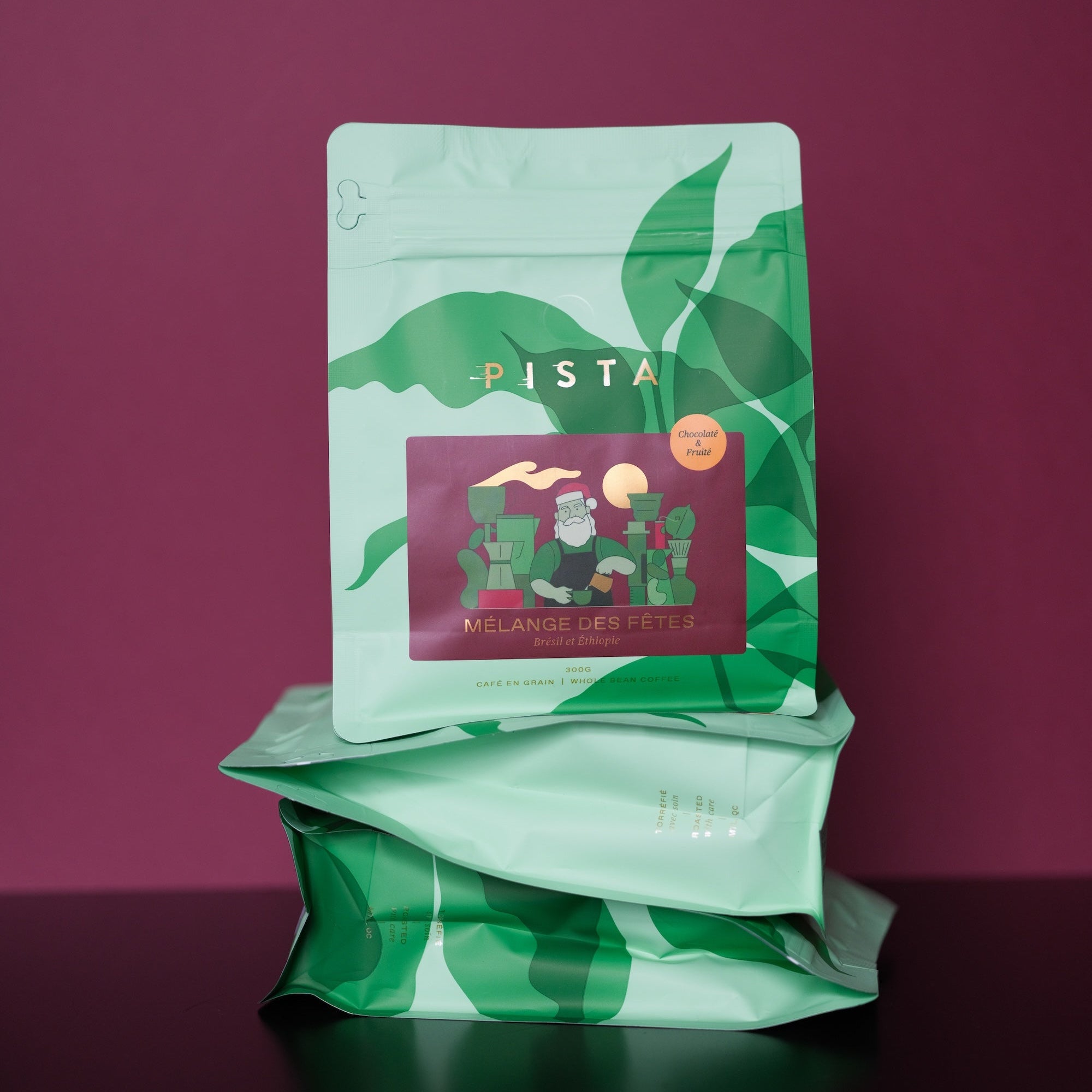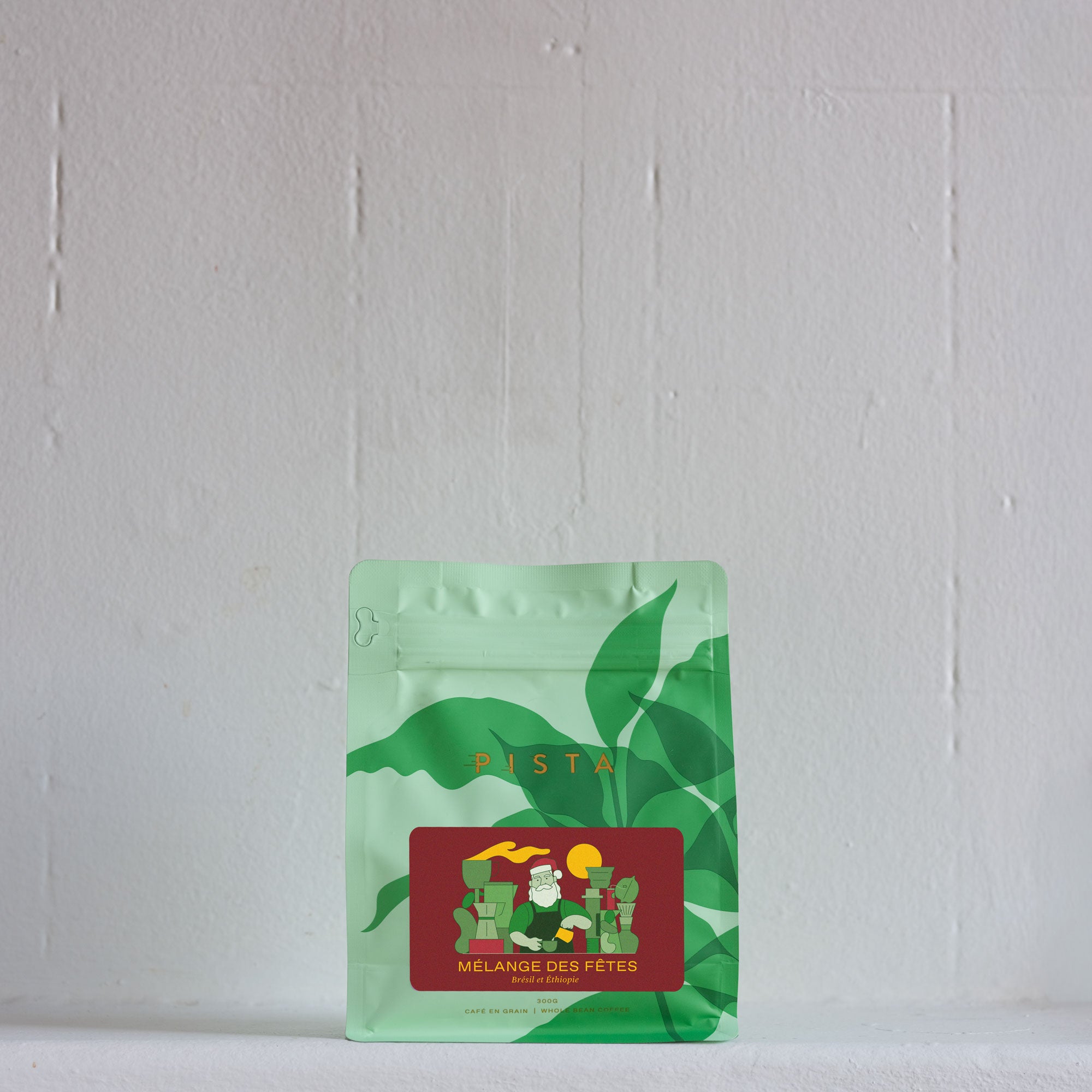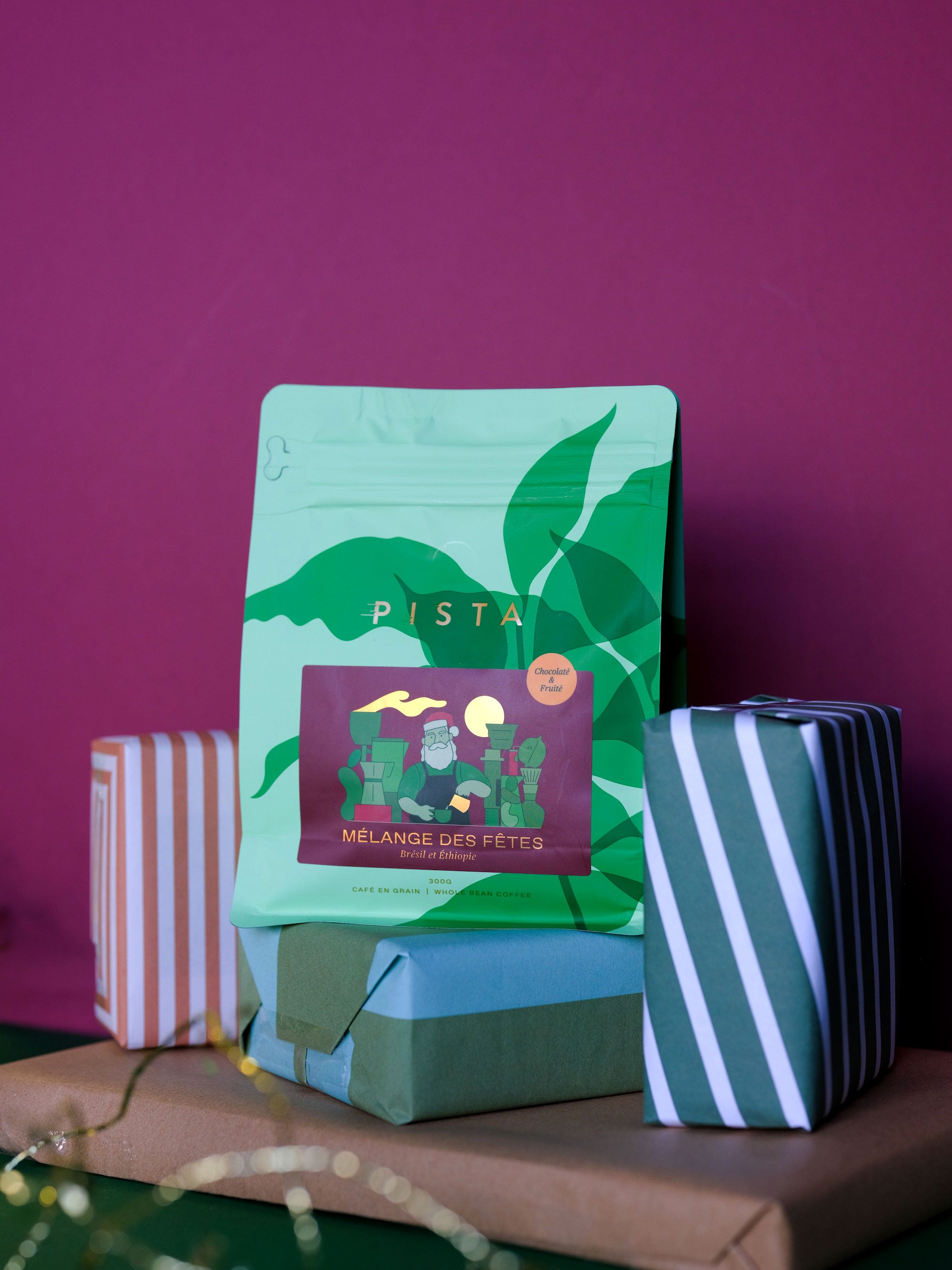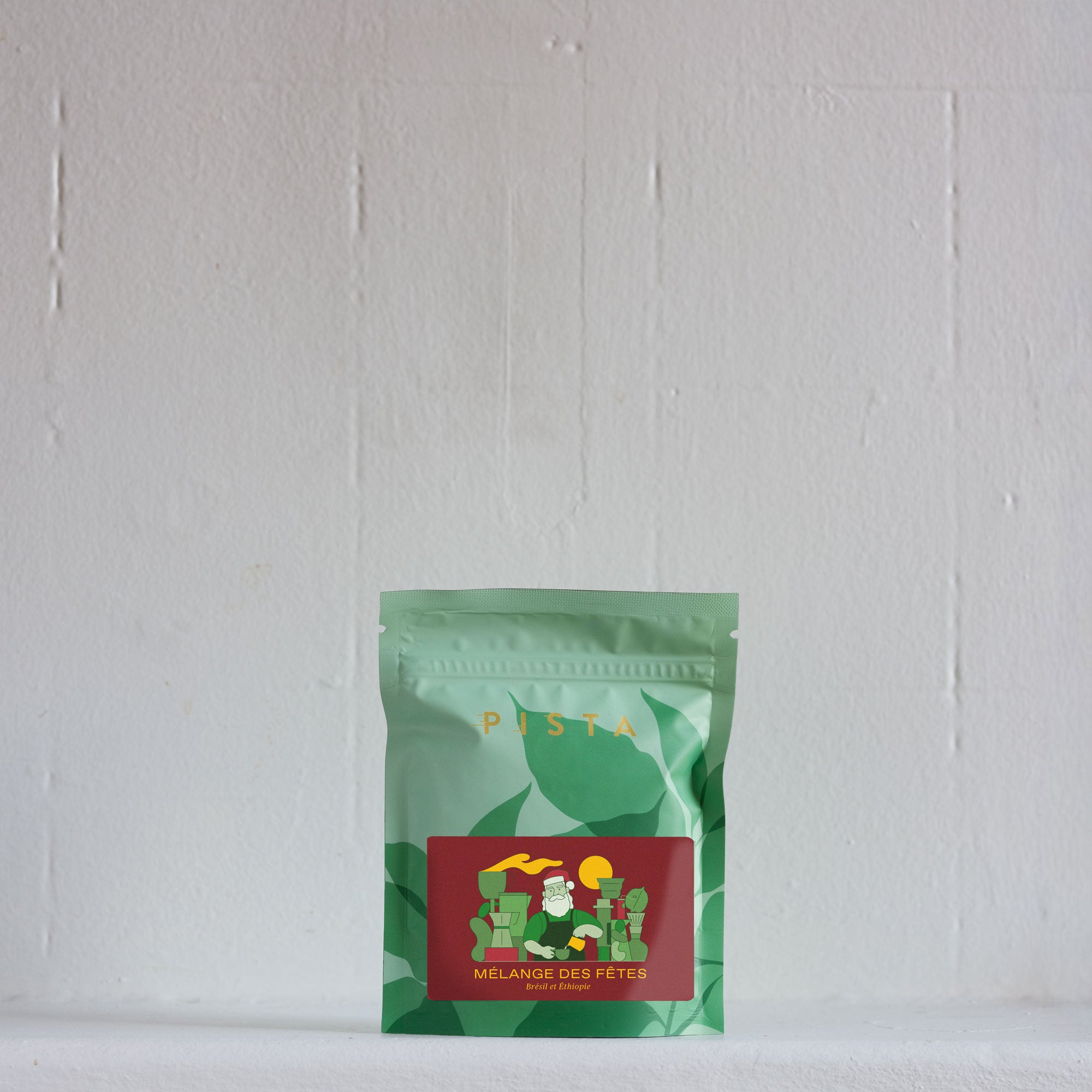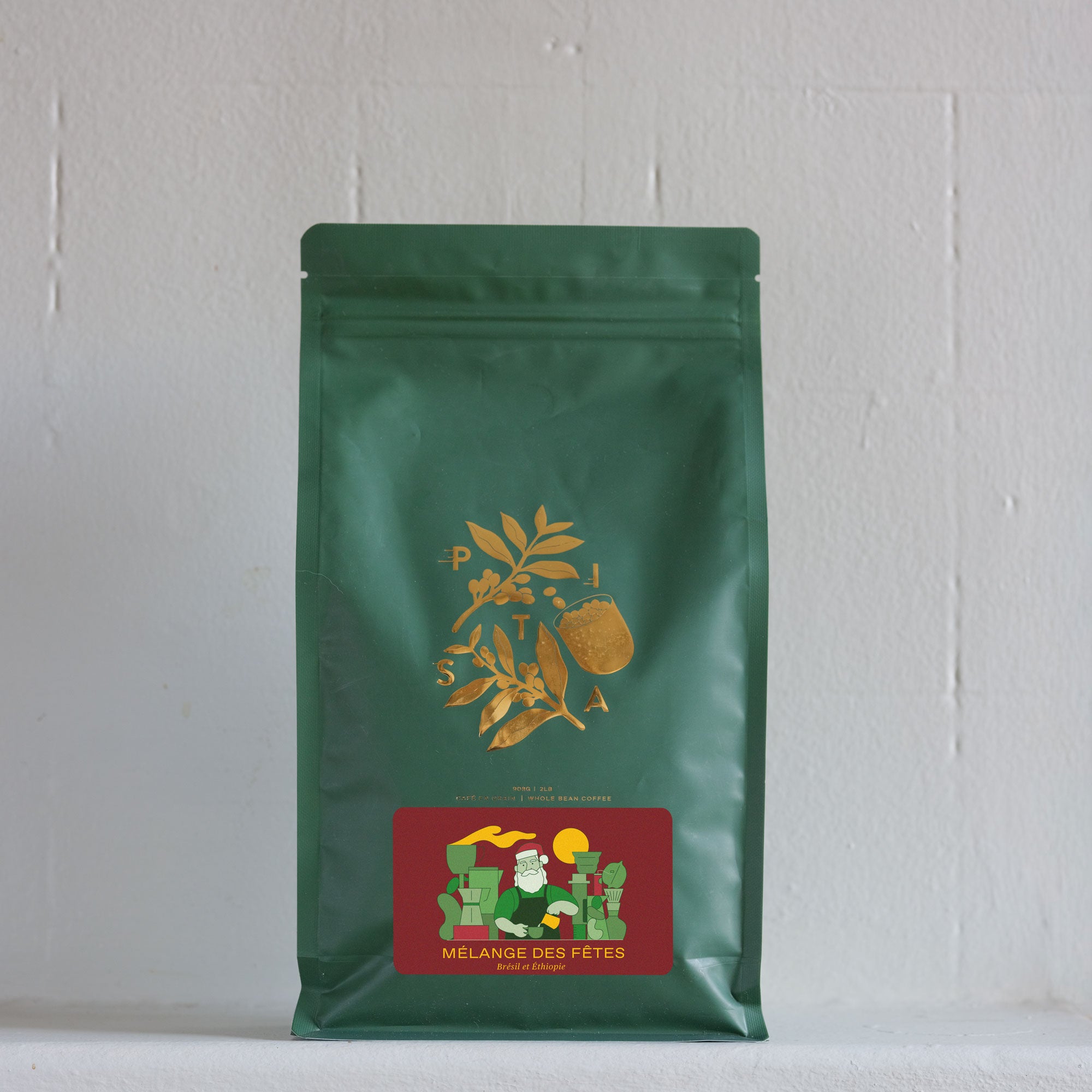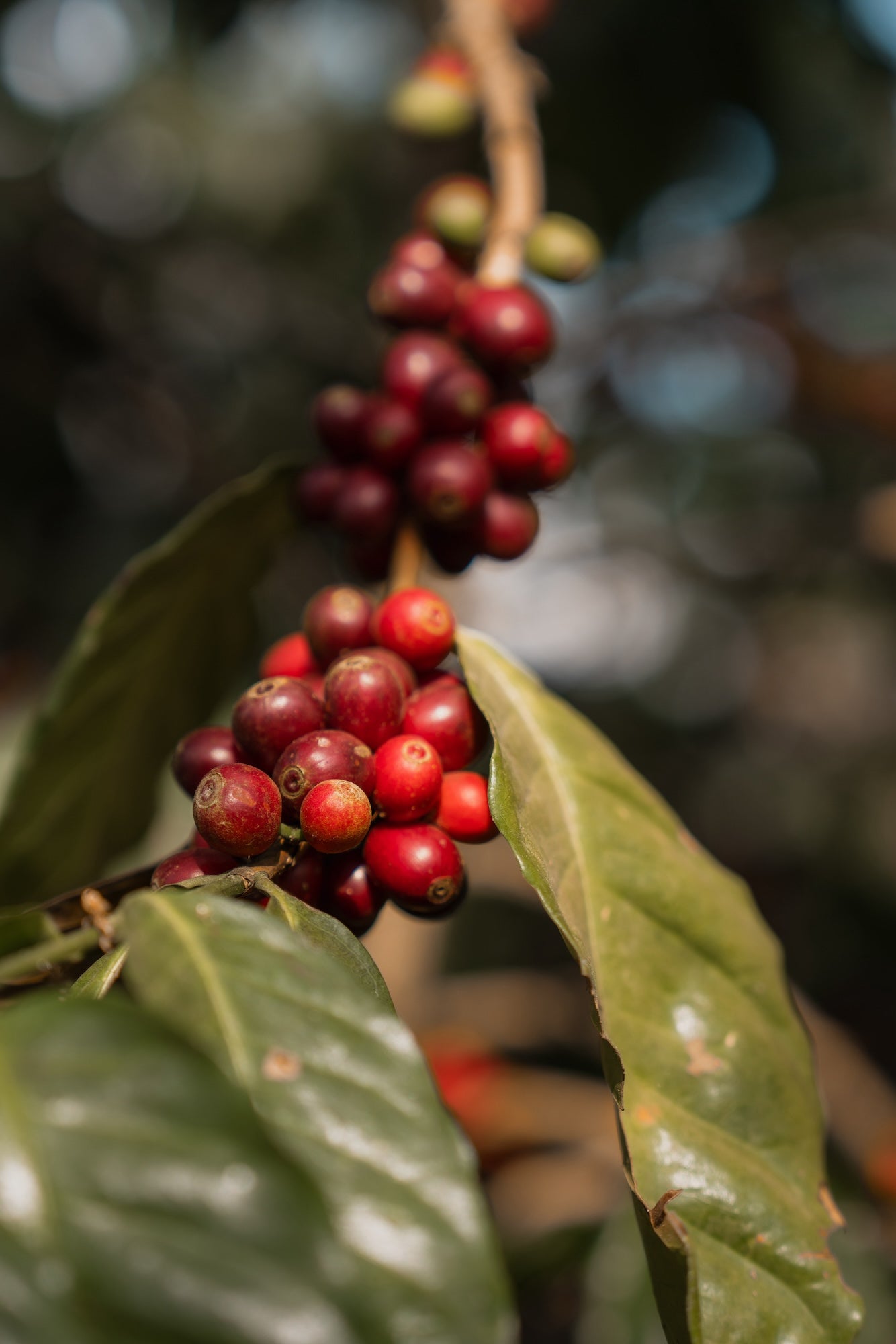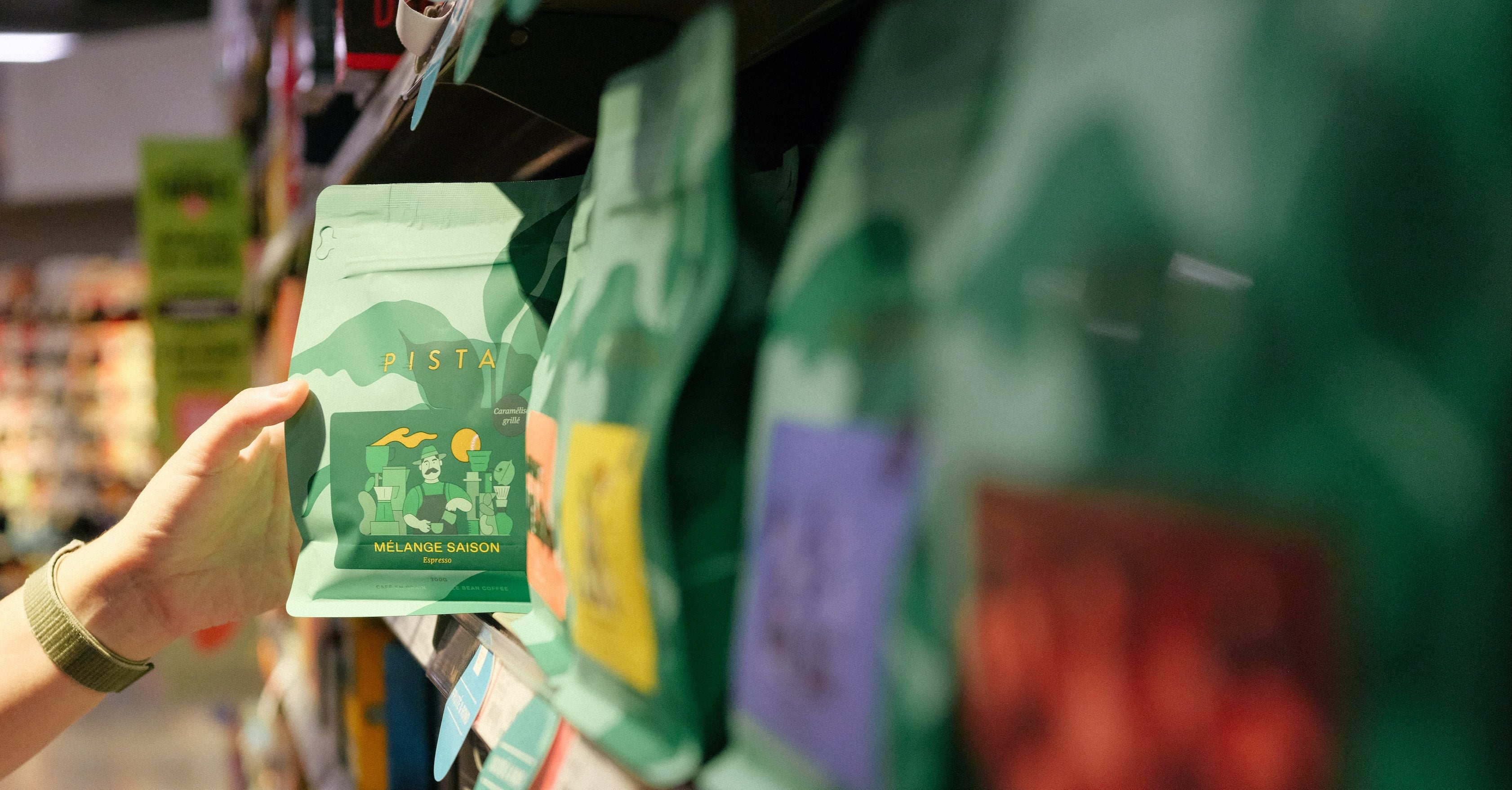
Pour Pista, la transparence et la traçabilité, c’est une question de respect. Respect envers celles et ceux qui cultivent le café, et envers notre communauté. Ça nous permet de raconter l’histoire derrière chaque tasse, d’assurer une rémunération juste et de bâtir un lien de confiance, du producteur au client.
Formations de barista à la maison
On veut vous aider à faire de meilleurs cafés à la maison. Que ce soit en choisissant les bons grains, en ajustant votre mouture ou en maîtrisant vos recettes, on est là pour vous guider, simplement.






